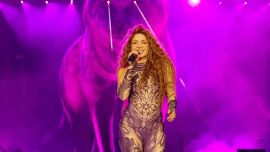Leaders from the world's top economies arrive in India on Friday for a two-day G20 summit overshadowed by Russia's invasion of Ukraine, worries over the global economy and climate change.
Host India has coined the optimistic slogan "One Earth, One Family, One Future," but the leaders of the Group of 20 nations are riven by differences and strategic fault lines.
Russian President Vladimir Putin and Chinese President Xi Jinping are skipping the September 9-10 summit in the capital New Delhi.
The G20 consists of 19 countries and the European Union, making up about 85 percent of global GDP and two-thirds of the world's population.
Here is a snapshot of some of the key issues, who will attend and who will not:
Joe Biden
The US leader will arrive in India keen to bolster alliances and offer support to developing countries, with Washington assessing that China is struggling.
He will discuss efforts to tackle multiple issues, from "combating climate change, to mitigating the economic and social impacts of Russia's war in Ukraine", National Security Advisor Jake Sullivan said.
Biden will be accompanied by Treasury Secretary Janet Yellen, on her fourth visit to India in 10 months as Washington seeks reform of the International Monetary Fund and the World Bank to better serve developing countries.
The White House wants the G20 to stay relevant as the "premier forum of economic cooperation globally," Sullivan added.
Lavrov, not Putin
Foreign Minister Sergei Lavrov will head the Russian delegation after Putin said he would not attend.
In March, the International Criminal Court announced an arrest warrant for Putin on accusations of war crimes for the unlawful deportation of Ukrainian children.
The Kremlin denies the accusations, insisting the warrant against Putin is "void."
Lavrov will head the Russian delegation as he did at the BRICS summit in South Africa last month.
Li Qiang, not Xi
Premier Li Qiang will lead China's delegation, Beijing said Monday, all but confirming that Xi will snub the meeting.
The summit has taken on additional importance this year as many countries wrestle with high inflation and economic turbulence linked to a slowing recovery from the Covid-19 pandemic.
China, the world's second-largest economy, is labouring through headwinds including weak consumer demand, soaring youth unemployment and a crisis in the crucial property sector.
It also has a long-running border dispute with G20 host nation India, with a deadly Himalayan clash in 2020 sending diplomatic relations into deep freeze.
India this week is staging military exercises near the Chinese border that will continue through the summit.
Narendra Modi
The world's most populous country holds the rotating G20 presidency and Prime Minister Narendra Modi has relished the opportunity for both India and himself to shine on the world stage.
He faces an uphill challenge, however, to forge consensus between major powers over key issues.
New Delhi is again at odds with Beijing after a Chinese map last week claimed land that India also claims, including territory close to where they battled in 2020.
India is also seeking to develop closer ties with Western countries, including fellow Quad members the United States, Japan and Australia.
Modi is expected to push efforts to see the group expand to 21 with the African Union invited to join, a move that has been backed by Biden.
Rest of the world
German Chancellor Olaf Scholz, French President Emmanuel Macron and European Commission President Ursula von der Leyen will be among the leaders representing the European Union.
Fellow G7 members Britain, Canada, Japan and Italy will be represented by their respective premiers Rishi Sunak, Justin Trudeau, Fumio Kishida and Giorgia Meloni.
From the Asia-Pacific region, Indonesian President Joko Widodo, South Korean President Yoon Suk Yeol and Australian Prime Minister Anthony Albanese will take part.
Turkish President Recep Tayyip Erdogan will attend in person, and Saudi Crown Prince Mohammed bin Salman is also expected.
A delegation from the only African nation in the G20, South Africa, will be led by President Cyril Ramaphosa.
Brazil's President Luiz Inácio Lula da Silva is coming and Argentina's Alberto Fernández is expected, but Mexican President Andrés Manuel López Obrador is likely to skip according to Indian media.
United Nations Secretary-General António Guterres will attend as an observer, with the heads of the IMF and the World Bank also in attendance.
Other leaders expected to attend include Bangladesh Prime Minister Sheikh Hasina and Nigerian President Bola Tinubu.
– TIMES/AFP


























Comments